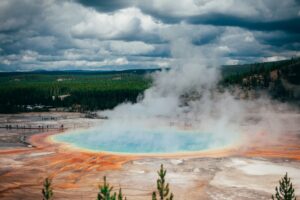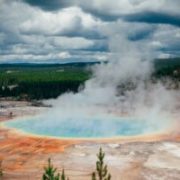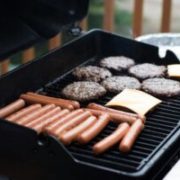National Park Road Trip
 Enjoy a National Park road trip with these top park suggestions
Enjoy a National Park road trip with these top park suggestions
Embarking on a road trip to explore the natural wonders of our National Parks is an adventure that promises breathtaking landscapes and unforgettable experiences. The United States is renowned worldwide for its remarkable collection of 63 National Parks, with fourteen of them proudly holding the distinction of being UNESCO World Heritage Sites (WHS). Whether you’re a nature enthusiast seeking tranquility or an avid traveler yearning for new horizons, here are the top five most visited National Parks that you should consider for your road trip itinerary:
Great Smoky Mountains National Park (WHS):
Welcoming nearly 10 million visitors annually, the Great Smoky Mountains National Park is a haven for outdoor enthusiasts. Immerse yourself in the splendor of ancient mountains, vibrant wildflowers, and diverse plant life. Enjoy captivating hikes to enchanting destinations such as Rainbow Falls, Charles Bunion, Alum Cave Bluffs, and Andrews Bald.
Grand Canyon National Park (WHS):
With its awe-inspiring grandeur, the Grand Canyon beckons over 5.5 million visitors each year. Marvel at the vastness and vibrant colors of this geological wonder as you stand at its rim. Explore hiking trails that lead to hidden gems, revealing the immense beauty of one of the world’s most iconic landscapes.
Rocky Mountain National Park in Colorado:
Unleash your sense of adventure in this captivating national park, offering 450 miles of pristine streams and 150 breathtaking lakes. Don’t miss the opportunity to visit Bear Lake and traverse the famous Trail Ridge Road, which offers stunning vistas and a chance to witness the park’s diverse wildlife.
Yosemite National Park (WHS):
Renowned for its towering granite cliffs, magnificent waterfalls, and ancient forests, Yosemite National Park is a nature lover’s paradise. Marvel at the majestic beauty of the glacier-carved Yosemite Valley, witness the sheer power of waterfalls like Yosemite Falls, and be humbled by the presence of giant sequoias.
Yellowstone National Park (WHS):
As the first designated National Park in the world, Yellowstone holds a special place in history and the hearts of nature enthusiasts. Drawing in nearly 4.1 million annual visitors, this park spans across three states—Montana, Idaho, and Wyoming—and boasts an extraordinary array of geysers, lakes, and captivating wildlife.
Embarking on a journey to one of these remarkable National Parks is a cherished tradition for many. Whether you opt for the freedom of a travel trailer, the comfort of an RV, or the thrill of motoring in your car or motorcycle while staying in the park’s lodges, you’re bound to create cherished memories for yourself or with your loved ones. Remember to plan ahead, as reservations at these popular parks fill up quickly, often months in advance. Additionally, practice safe driving by slowing down within the parks and remaining vigilant for wildlife, ensuring the safety of both yourself and the remarkable creatures that call these parks home.



 Summer is a season filled with warmth, sunshine, and the perfect opportunity to gather with friends and family for a delightful BBQ. Whether you choose to fire up the grill in your own backyard or head to a local park, these moments spent in the company of loved ones are truly memorable. But what exactly makes a BBQ party great? Well, fear not, as we have some simple suggestions to help you create a party that you and your guests will cherish for years to come!
Summer is a season filled with warmth, sunshine, and the perfect opportunity to gather with friends and family for a delightful BBQ. Whether you choose to fire up the grill in your own backyard or head to a local park, these moments spent in the company of loved ones are truly memorable. But what exactly makes a BBQ party great? Well, fear not, as we have some simple suggestions to help you create a party that you and your guests will cherish for years to come!
 Owning a secondary home or vacation property can be an incredibly fulfilling experience, offering you the opportunity to create lasting memories. However, it’s important to recognize that owning a vacation home comes with unique responsibilities and maintenance requirements. Whether you’re purchasing a lakeside cabin just a few miles away or an oceanfront condo in Hawaii that you’ll visit a couple of times a year, ensuring the proper protection of your property is crucial. If you decide to rent out the property, it introduces a whole new level of complexity to secondary home ownership, making it even more imperative to review your insurance coverage with a licensed agent.
Owning a secondary home or vacation property can be an incredibly fulfilling experience, offering you the opportunity to create lasting memories. However, it’s important to recognize that owning a vacation home comes with unique responsibilities and maintenance requirements. Whether you’re purchasing a lakeside cabin just a few miles away or an oceanfront condo in Hawaii that you’ll visit a couple of times a year, ensuring the proper protection of your property is crucial. If you decide to rent out the property, it introduces a whole new level of complexity to secondary home ownership, making it even more imperative to review your insurance coverage with a licensed agent.